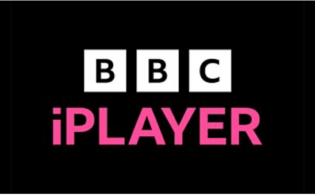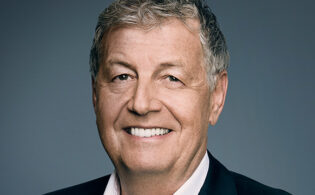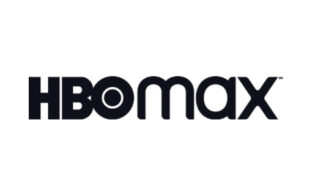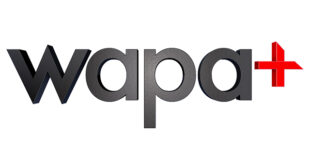MIPCOM 2019 Personality of the Year Robert Greenblatt was interviewed on the stage of the Grand Auditorium by World Screen’s Anna Carugati, discussing the need to take risks in programming, the strategy for HBO Max and the enduring strength of WarnerMedia’s linear channels.
Greenblatt is chairman of WarnerMedia Entertainment and direct-to-consumer. He told Carugati that his interest in the entertainment business began in his teenage years, starting with a love for musical theater in high school. “As a teenager, my dream was to one day go to Hollywood and run a movie studio. I ended up going to Hollywood and not running a movie studio, but the kid from Illinois ultimately got the dream!”
His first television job was with Lorimar under Peter Chernin. Once Warner Bros. bought the company, Chernin and Greenblatt left for the fledgling FOX network. “We had to establish ourselves as the alternative network in town,” Greenblatt recounted. “We had to be the place that you could do the show you couldn’t get on any other network. Therefore we came around to the notion that maybe we should start appealing to younger viewers. At this time, the 18-to-49 demographic wasn’t really established as something that advertisers went after or coveted.” The channel’s first big success was Aaron Spelling and Darren Star’s Beverly Hills, 90210. Greenblatt then went on to be a producer, teaming with David Janollari to set up a production company. “We decided to do shows that nobody else was doing. Our first show on ABC was The Hughleys at a time when there weren’t many shows speaking to African-American audiences, there weren’t many shows starring African Americans. We did American Family with a Latino cast. We thought, let’s look for niches that aren’t being filled by the rest of the landscape. We did Six Feet Under for HBO, which was unique also. How many shows are there about funeral homes?”
Greenblatt’s experience as a producer “was really valuable when I went back to the other side of the table at Showtime [as president of entertainment], having an understanding of production and being able to look at a budget. It’s easy to sit on one side of the table and say, this has to be done cheaper. But actually going in and figuring out how to do that and not lose sight of the vision and quality you ultimately are going for, that’s a skill unto itself.”
Greenblatt then moved on to NBC, where he led its turnaround from a long slump as the last-placed network. “I like a challenge!” Greenblatt said. “Every seven or eight years I decide to take on a new challenge. Showtime was a great run, about seven years. We basically turned Showtime around too. The goal was to turn it from primarily a movie network into a network with series. That was a great experience. I decided, it’s time for a new challenge. NBC came to me. People said, Why would you want to go to broadcast television, isn’t it dying? I grew up with NBC. I loved the network, loved the programming; I thought, this is one of America’s great cultural institutions, it’s far from dying. Cable had come alive and SVOD was on the horizon, so there was a lot to the argument that the old legacy broadcast networks were getting to a point where they were slowing down and the audience was starting to have other options. I thought, let’s see if we can do something at NBC. Comcast had acquired the company and was excited about reinventing NBC and bringing it back to life. I inherited a prime-time schedule that was in fourth place for ten years. I set upon a plan and we got back to the roots of what the network was: great programming. We reinvented the 10 o’clock hour, which had been abandoned. And now NBC wins the hour most nights of the week.”
The Voice was key in NBC’s comeback, Greenblatt noted, alongside more recent hits like This Is Us. “There’s still great life in broadcast television,” he said. “Linear is a declining business, but if you count up all the viewers that watch post day one, it’s a significant amount of people still watching broadcast television.”
Greenblatt joined WarnerMedia earlier this year to lead the company’s upcoming streaming service. “The future is direct-to-consumer; there’s no doubt about it. WarnerMedia is really very aggressively moving into this space. The assets are undeniable. The buy-in from the parent company AT&T is strong and aggressive. We’re going to bring [HBO Max] to market next spring. It’s bringing together all of the assets of the company.”
On the original programming strategy for HBO Max, Greenblatt said, “We’ve been buying a lot of new shows from an array of really exciting people. Dramas, comedies, reality shows. We’re expanding into younger audiences, kids’ programming, young adults, Gen Z.” Talent on board for content on the service include Ridley Scott, Anna Kendrick and Paul Feig, Ansel Elgort, Steven Spielberg, Ellen DeGeneres, Kaley Cuoco and Greg Berlanti.
“People have been very excited to come over to our new platform and be in business with us. We’re going to lay it all out at the end of October. A lot has been announced. It’s a big new slate of original programming that will be alongside the entire HBO service.”
Carugati asked Greenblatt about how HBO plans to up its volume while maintaining the quality that subscribers have come to love of the service. “People know it for its excellence. The amount of great shows is staggering. This year alone has been extraordinary. There’s no plan to do anything but keep that intact, exactly what it is. The shows are made very carefully. There’s a certain number that I think is a comfortable amount of shows. We’re increasing it slightly, but not anything to be alarmed about. It’s still business as usual. We’re not tasking HBO to do anything more than what they do. They’ve ramped up a little bit over the last year, but it’s not going to be that significant.”
On international partnerships, Greenblatt noted, “We see all the great shows being made around the world. Production is ramping up in so many countries. We are wide open for putting those kinds of shows on HBO Max as well. HBO has been flirting with it too, with My Brilliant Friend, Our Boys. So there is some of that already in the system. We’re wide open to bringing more of those shows into HBO Max.”
Library content will also be key to HBO Max, Greenblatt said. “We know people come to these platforms for different reasons. Original programming is the thing. Movies are also a big driver. Series are as well. Acquisitions are a great driver as well. We are looking at acquiring shows, but also mining the libraries we have.”
Friends and The Big Bang Theory, “two of the biggest shows to come out of Warner Bros. Television,” Greenblatt said, will be part of HBO Max. “It’s a treasure trove of great shows. Movies and original series are the reasons people want these platforms, but you round them out with all this great additional content.”
On algorithms and curation, Greenblatt noted, “You need some version of an algorithm because of scale—when you get to millions of customers. But early on, when you have new customers, and you’re just gathering new data, you can’t use the algorithm yet. So at least initially, we’re going to be doing it the old-fashioned way, by scheduling and putting shows on with other shows and rolling things out together. We’re going to try to build an algorithm that is more personal to you. On some services, it’s an average of 9 minutes to find something you want to watch. We’re going to try to shorten that amount of time. But initially, you start by laying shows out according to a cadence. Eventually, the tech will catch up and we’ll find a great balance between the computer and the human being as helping to curate.”
Greenblatt also oversees the linear channels TBS, TNT and truTV. “Linear is still a great business. There are different audiences that come to different mediums. The CW shows are modestly successful on the linear platform; they index extraordinarily high on an SVOD platform. We love the ability to look at the different mediums and look at how shows play across them. We have no interest in getting out of our linear business anytime soon. They are very robust businesses. It’s where a lot of advertising is generated. That’s important to us. I think the whole ecosystem can work together.”
While news won’t be part of HBO Max, CNN Films library content will be available, “and they will be making some new things for us. We’re not going to be a live medium, at least in the near term. But CNN is a great asset in the family.”
Greenblatt also talked about musicals being part of the service, with the company yesterday announcing Grease: Rydell High. “We’re taking Grease the musical and reinventing it as a weekly television series, with some of the music, some of the characters. It will be a big, fun, rock and roll musical. And we have some other ideas cooking. I’m trying to do what I’ve always been trying to do: something different that others aren’t doing.”
Greenblatt continued, “In a world where the volume has increased exponentially, it’s gotten harder…to find the unique show that nobody else is doing. That’s the challenge, and the joy when you hit upon something like Chernobyl. Who would have thought a five-part docudrama about this nuclear accident would have caused the sensation that it did? There’s nothing else like it and it was executed at the highest level and marketed beautifully and HBO did everything right and lo and behold, 13 million or 14 million people watched it. No idea is off the table. It’s just a matter of, what’s the execution and how do you market it? The last thing you should do is something everyone else is doing.”
Building HBO Max has been “the most challenging thing I’ve ever been involved in, and in some ways the most exciting. It’s like building a start-up. We’re building a massive company from scratch, inside another massive company. It’s different from just taking a job and trying to figure out, how do I do a better version of this network or that network? It really is a whole new enterprise. And I love that it’s bringing together HBO, the Turner networks, all the Warner Bros. properties. That is really exciting.”






